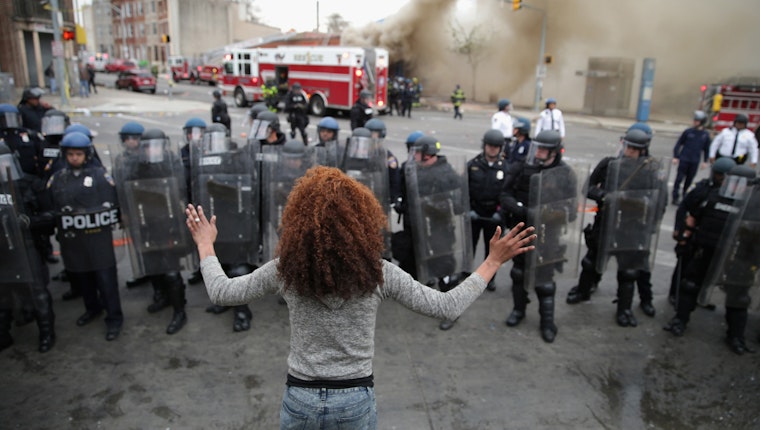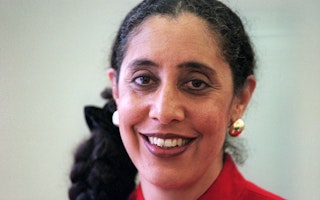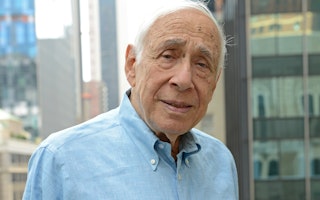Challenge and Hope in Baltimore
By Bryan Stevenson

There is a lot of frustration and anger in America today. You see it in Baltimore, in the aftermath of Freddie Gray’s death. You see it in Ferguson, where Michael Brown was killed with no prosecution. You see it in Cleveland, where Tamir Rice was fatally shot with no accountability, and in New York, where Eric Garner died with no consequences for the people who ended his life.
The anger and frustration is understandable. But it’s about something bigger than the loss of these young black men. There is a segment of the population in the United States—mostly poor, and people of color—who have been living on the margins of our society for too long. And they have been victimized by an aggressive and unfair criminal justice system, the face of which is the police, who regrettably harass and threaten poor people and people of color every day.
This segment of our population that has been so criminalized and demonized from the time they were very infant children that sometimes they lose hope. In my work, I talk to far too many 13-year-olds who think they’ll either be dead or behind bars by the time they turn 21.
They grow up with an expectation of incarceration, because they see it happening all too often to their neighbors, friends, and family members. And when people begin to live with the sense that there’s no opportunity or chance for success, they sometimes express themselves in less productive ways.
What’s the way forward, for Baltimore and so many other cities today? Reorienting the police is a big part of it. There are great police officers out there. There are people who go into policing because they care deeply about their communities. They just don’t represent the dominant mindset.
But there’s a lot we can do. We can create a greater role for communities and citizens in managing and directing their police forces. That’s not historically the way it’s worked, but there’s nothing to prevent that. The communities with strong civilian review boards and strong police accountability are the communities with better police departments.
We need better training, better recruitment, and more diverse departments. We also need better communication and transparency. We don’t know the demographics of the police departments in America, and we don’t have good data on the use of force.
Right now there’s this myth out there that if you’re in a uniform and if you have a weapon, you have ultimate power, and people are supposed to just do what you tell them to do; you’re not accountable to anyone. Too many officers have a warrior mentality. We need to replace it with a guardian mentality. Until departments see themselves as obligated to provide the public with reliable information about what the police are doing, there’s going to be doubt and distrust.
I am a committed optimist. I have to be hopeful about what we can achieve. We’re at a moment now where we’re beginning to turn a corner on mass incarceration. It’s encouraging to see so many new voices weighing in on how unacceptable it is that this country has the highest rate of imprisonment in the world.
We’re seeing some police departments directing low-level drug users away from the criminal justice system, toward community health services. The fact that we’re talking more about race—and the legacy of racial inequality—is an encouraging and positive step.
But progress is not inevitable. Justice comes when people struggle; when more people struggle, more progress is made. What encourages me is that we’re at that stage in the struggle when you see a greater degree of education and information. And with more education and information, the state of inequality and injustice we’ve been living with begins to crack and unravel.
As we discuss in the video above, there is an opportunity at hand. We can seize it, to honor the memory of Freddie Gray, and Tamir Rice, and Michael Brown, and Eric Garner. We owe it to the people of places like Ferguson, Staten Island, Cleveland, and Baltimore.
Bryan A. Stevenson is a member of the U.S. Programs Advisory Board

